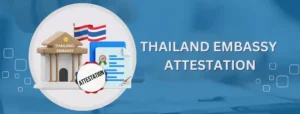When dealing with legal documents for international use, understanding the difference between apostille and attestation is crucial. Both processes authenticate documents, but they serve different purposes and are used in different contexts. In Pakistan, where document verification is often required for education, employment, or business abroad, knowing which process to follow can save time and effort.
What is Attestation?
Attestation is the process of verifying the authenticity of a document by obtaining official stamps and signatures from designated authorities. In Pakistan, attestation is typically required for documents being used in countries that are not members of the Hague Convention. The process involves multiple steps:
1. Notary Public Attestation: The document is first verified by a notary public.
2. Home Department or Relevant Authority Attestation: Depending on the type of document (educational, personal, or commercial), it is attested by the respective provincial department.
3. Ministry of Foreign Affairs (MOFA) Attestation: The final step is attestation by MOFA, which confirms the document’s authenticity for international use.
Attestation is a lengthy process and may require additional verification from the embassy of the destination country.
What is Apostille?
An apostille is a simplified form of document authentication used for countries that are members of the Hague Convention. Pakistan, however, is not a member of the Hague Convention, meaning apostille services are not directly available within the country. If you need an apostille for a Pakistani document, you must first get it attested by MOFA and then have it apostille in a country that is a member of the Hague Convention.
For example:
• If you are using a Pakistani document in the United States (a Hague Convention member), you would need to get the document attested by MOFA and then send it to the U.S. for apostille.
When to Use Apostille vs. Attestation
• Use Apostille: If your destination country is a member of the Hague Convention, and you can process the apostille through a third country.
• Use Attestation: If your destination country is not a member of the Hague Convention, or if you are using the document within Pakistan.
Conclusion
In Pakistan, attestation is the standard process for document authentication, while apostille is only applicable for Hague Convention countries and requires external processing. Understanding the difference between the two can help you navigate the legal requirements for your documents efficiently. Always check the specific requirements of the destination country to ensure your documents are properly authenticated.
If you need further assistance with document attestation or apostille services, consult a professional service provider to streamline the process.


